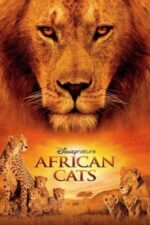Beyond the Postcard: Exploring the Complexities of the "African Bush" on Film
There’s something undeniably alluring about the image – golden savannah stretching towards the horizon, acacia trees silhouetted against a fiery sunset, and the promise of wild adventure lurking just beyond the jeep. The “African bush” holds this powerful grip on our collective imagination, frequently presented as an exotic backdrop in film. But what happens when we look beyond that postcard-perfect image? What do films truly tell us about the African landscape – not just its beauty, but also its complexities and the human stories intertwined with it?
It's fascinating how filmmakers have approached this theme over decades, each generation grappling with different perspectives and cultural sensitivities. Take, for instance, Mogambo (1953). While visually stunning, it’s a product of its time – a colonial-era melodrama that uses the African setting to amplify a rather predictable love triangle. It's enjoyable in a campy way now, but its portrayal of indigenous populations feels undeniably problematic through a modern lens. The landscape serves primarily as a stage for Western characters and their dramas.
Then you have films like The Naked Prey (1964), which attempt to explore the collision of cultures with considerably more grit. The film's depiction of the tribe, while not entirely devoid of stereotypical elements common in older adventure films, does at least acknowledge a clash of perspectives – and the brutal consequences of misunderstanding. It highlights the precariousness of survival when venturing into unfamiliar territory, both physically and culturally.
More recently, films like Thabo and the Rhino Case demonstrate a desire to present more nuanced narratives. This coming-of-age story uses the backdrop of the African village and its wildlife conservation challenges to explore themes of innocence lost and the realities that exist beyond idyllic landscapes—a refreshing shift from solely focusing on Western protagonists' adventures. It’s a film grounded in its community, offering an intimate portrait rarely seen in earlier depictions.
And then there are films like Holiday in the Wild, which, while leaning into romance, uses the setting as a catalyst for personal growth and self-discovery – albeit through a more familiar "finding yourself" narrative. It's less about the bush itself, and more about how it mirrors a character’s internal journey. Even the nature documentary African Cats offers an insight—not just into wildlife behaviour, but also into the precariousness of their existence within this vast landscape.
The African bush in film isn't simply scenery; it represents something deeper: adventure, danger, cultural difference, and ultimately, a profound connection to the natural world. As our own understanding of colonialism and representation evolves, so too will how we see – and expect to see – these stories unfold on screen. It’s an ongoing conversation, and one that's always worth having.
What films about the African bush have resonated with you? Do you find yourself drawn to the grand adventure or the quiet human story unfolding within it?
























